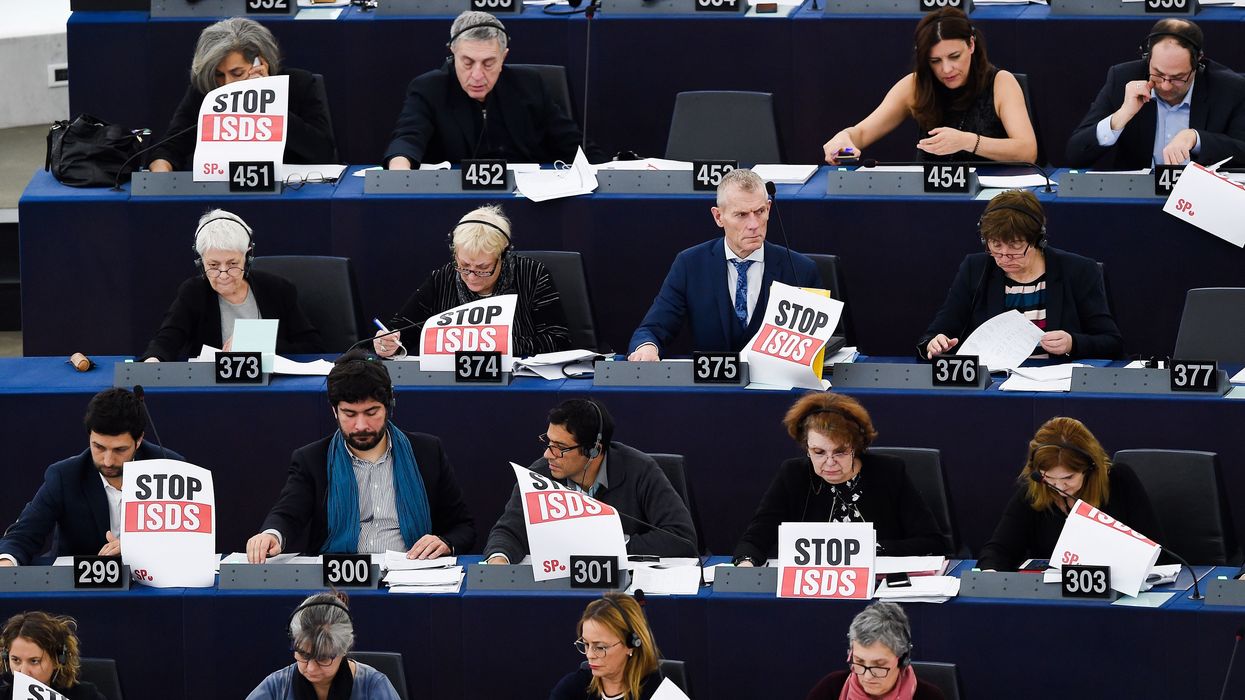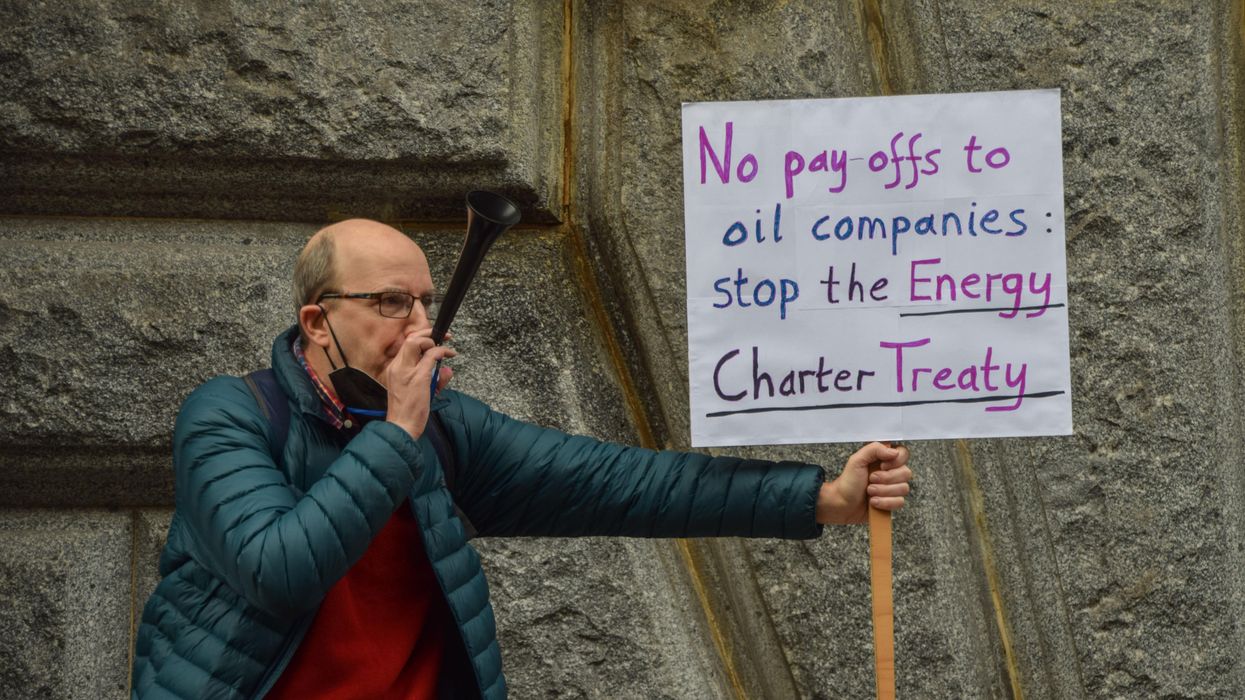It’s astounding that this plan, which is supposed to serve as the basis for an inter-governmental agreement, is so stuck in the past. For decades now, social movements and elected officials in many countries have become increasingly opposed to trade and investment rules that grant enormous privileges and power to transnational corporations.
The increase in demand for minerals for euphemistically named “green” energy transitions means that governments will be at greater risk of facing multi-million dollar lawsuits, as these processes are generating social reactions worldwide.
In many ways, these old rules directly contradict the U.N. summit’s overall goal of creating “a world that is safe, sustainable, peaceful, inclusive, just, equal, orderly, and resilient.”
They also make a mockery of the summit’s stated commitment to the U.N. Charter principle of “full respect for the sovereign equality of all Member States” and the principle of “equal rights and self-determination of peoples.”
Just take a look at how the natural resource extractive industries have used the existing investor-state dispute settlement (ISDS) system to undercut national sovereignty and sustainability and to foment conflict. The mining sector, in particular, has used this system, enforced through almost 3,000 treaties, to sue governments in supranational tribunals, bypassing national legal systems.
The vast majority of ISDS claims are directed against countries in the so-called “Global South,” and most suits are targeted at Latin American countries. ISDS allow corporations to suppress the opposition of local and Indigenous communities fighting for their territorial and environmental rights. When governments respond in favor of communities resisting mining projects, companies often use these lawsuits to blackmail governments into backing down and granting permits for environmentally destructive projects or pay “compensation” for the loss of expected corporate profits.
Investment treaties even include “full protection and security” clauses that give companies the right to demand that governments repress communities that oppose their mining projects. In Guatemala, for instance, the Nevada-based mining company KCA claims that the government failed to provide access to a mining site blocked by Indigenous protesters, and is suing the country for more than $400 million.
The increase in demand for minerals for euphemistically named “green” energy transitions means that governments will be at greater risk of facing multi-million dollar lawsuits, as these processes are generating social reactions worldwide. The Transnational Institute, the Institute for Policy Studies, and other organizations recently published extensive information on mining (and other) company lawsuits against governments in an “ISDS-Tracker” site.
Panama is facing a particularly scandalous example of these ISDS lawsuits. The people of this country have risen up against the Canadian mining company First Quantum and in November 2023 succeeded in having Panama’s Supreme Court declare the renewal of the company’s copper mine license unconstitutional. This led the Panamanian National Assembly to approve a mining moratorium law.
According to reports, First Quantum has sued Panama for the unpayable sum of $30 billion at the International Chamber of Commerce in Paris, and has threatened another $20 billion arbitration under the Canada-Panama Free Trade Agreement.
Other transnational mining companies affected by the cancellation of licenses have followed First Quantum’s example and, in total, Panama faces ISDS claims for at least $57 billion, equivalent to more than half of its GDP.
As we demonstrate in our recent report “ISDS: A portrait of transnational power in Mexico, the investment protection regime, and its consequences,” Mexico is facing lawsuits totaling at least $13 billion, with more than half of them related to mining. This figure is partial, as it corresponds only to claims at the World Bank’s International Centre for the Settlement of Investment Disputes (ICSID), which publishes information about them. On the other hand, the International Chamber of Commerce, where Panama has been sued, and other supranational tribunals do not publish information on cases.
The ISDS system has been dismantled among some rich countries. For instance, the United States and Canada eliminated it among themselves in the United States-Mexico-Canada Agreement. The European Union eliminated it among its member states and is exiting the Energy Charter Treaty, which also allowed these investor-state suits.
If world leaders who are coming to the U.N. Summit on September 22 and 23 are serious about protecting the future of humanity and the planet, they should dismantle this anti-democratic investment system (ISDS) for all countries.




